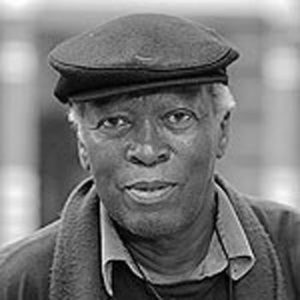
Can Themba
*Can Themba was born on this date in 1924. He was a Black South African activist and short-story writer.
Daniel Canodoise "Can" Themba was born in Marabastad, near Pretoria, South Africa. The town was destroyed under the provisions of the apartheid Group Areas Act, which reassigned ethnic groups to new areas. He was a Fort Hare University College student, receiving an English degree (first-class) and a teacher's diploma, but he wrote most of his work in Sophiatown, Johannesburg, South Africa.
After moving to Sophiatown, he tried his hand at short-story writing. Temba entered Drum's first short story contest (a magazine for urban black people concentrating mainly on investigative journalism), which he won. He subsequently worked for Drum magazine, becoming one of the "Drum Boys." This group lived by the dictum: "Live fast, die young, and have a good-looking corpse." Part of Drum's ethos was investigative journalism. One of the aims was to show the realities and inequities of apartheid.
Themba decided to see how white churches would react to his attending services. "The Presbyterian Church in Noord Street allowed me in, yet the one in Orange Grove refused me admittance. They explained that the hall was rented from some boys' club whose policy did not allow Non-whites into the hall. They also said something about the laws of the country." "At the Kensington DRC (Dutch Reform Church), an aged church official was just about to close the doors when he saw me. He bellowed in Afrikaans: 'Wat soek jy?' (What do you want?). 'I've come to church, I said. He shoved me violently, shouting for me to get away. I walked off dejected." "A few doors away was the Baptist Church, and as I walked towards it, I began to think that people didn't want me to share their church. As I walked through the Baptist door, I was tense, waiting for that tap on the shoulder…but instead, I was given a hymn book and welcomed into the church. I sat through the service… This up and down treatment wasn't doing my nerves much good."— Can Themba, The Will to Die.
Growing frustrations with the restrictions of apartheid caused him to move to Swaziland, where he worked as a teacher. In 1966, he was declared a "statutory communist," because of which his works were banned in South Africa. His literary output was only readily available in the 1980s with the publication of two collections, The Will to Die (1972) and The World of Can Themba (1985). In his stories, he described the frustrations of the university-educated urban Black people, who were unable to realize their true potential because of the racial restrictions of apartheid, and trying to balance their modern urban culture with the historical rural tribal one.
His most famous story, "The Suit," is about Philemon, a middle-class lawyer, and his wife, Matilda, who live in Sophiatown. (A stage version of "The Suit" was created in Johannesburg in the early 1990s and was translated into French for a production in Paris in 1994 and London in 2012.) Themba's increasing dependency on alcohol led to darker, introspective pieces such as Crepuscle, The Will to Die, and The Bottom of the Bottle. Can Themba died of Coronary thrombosis on September 8, 1967.